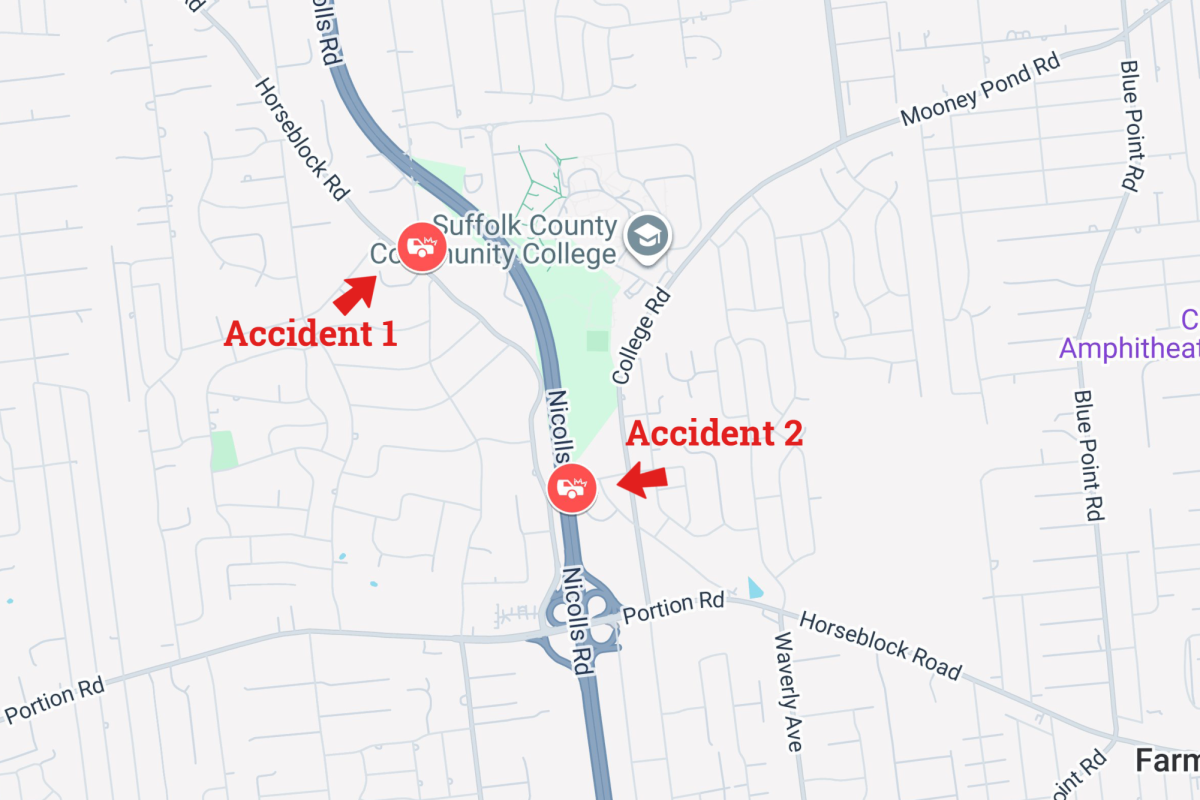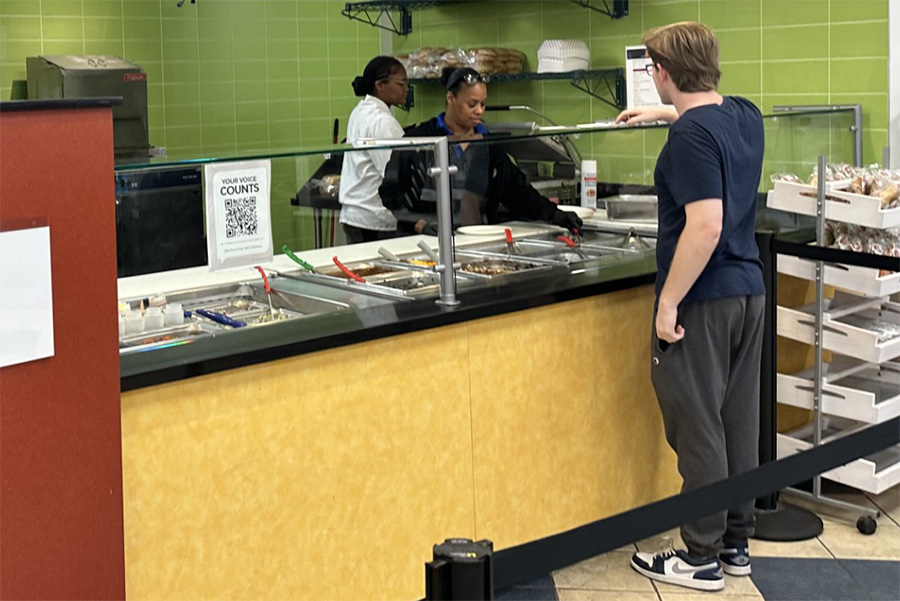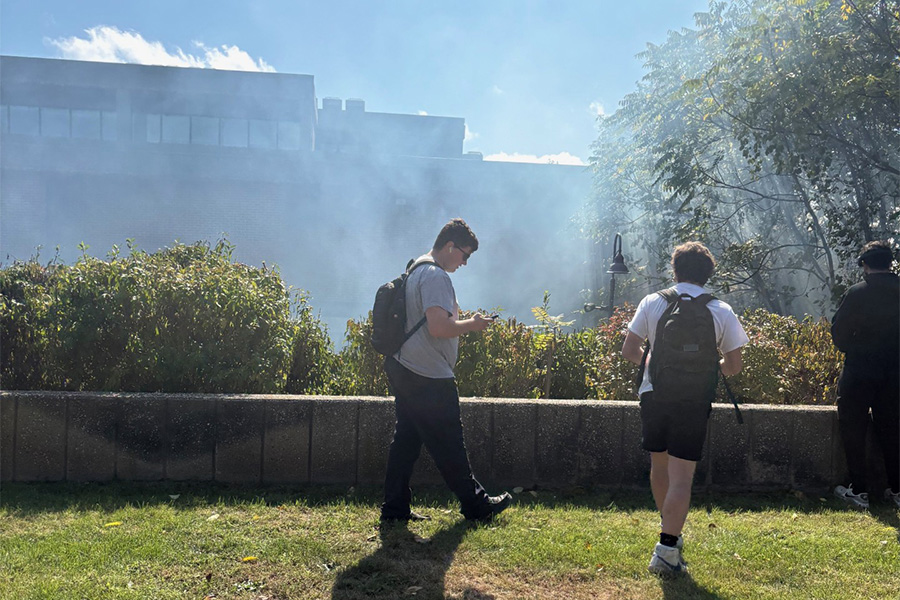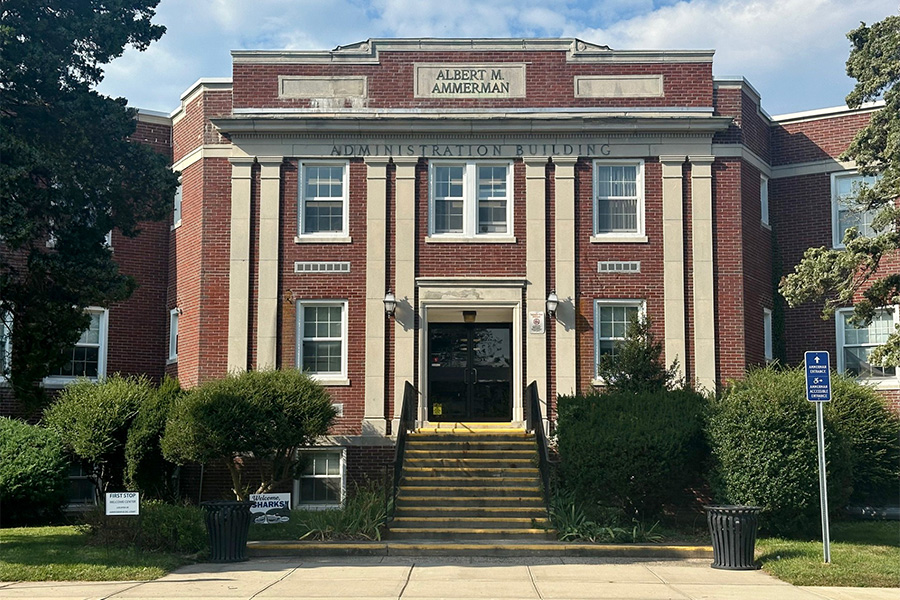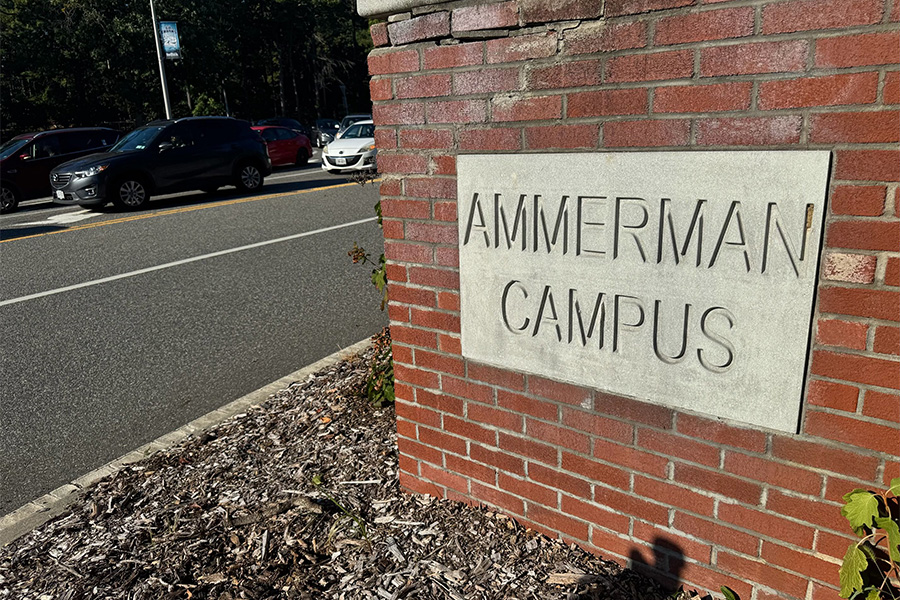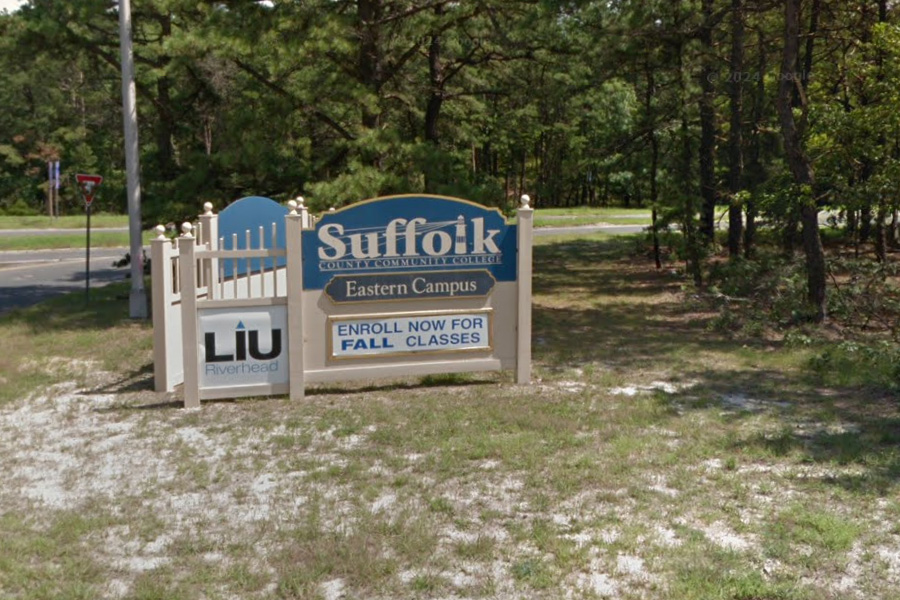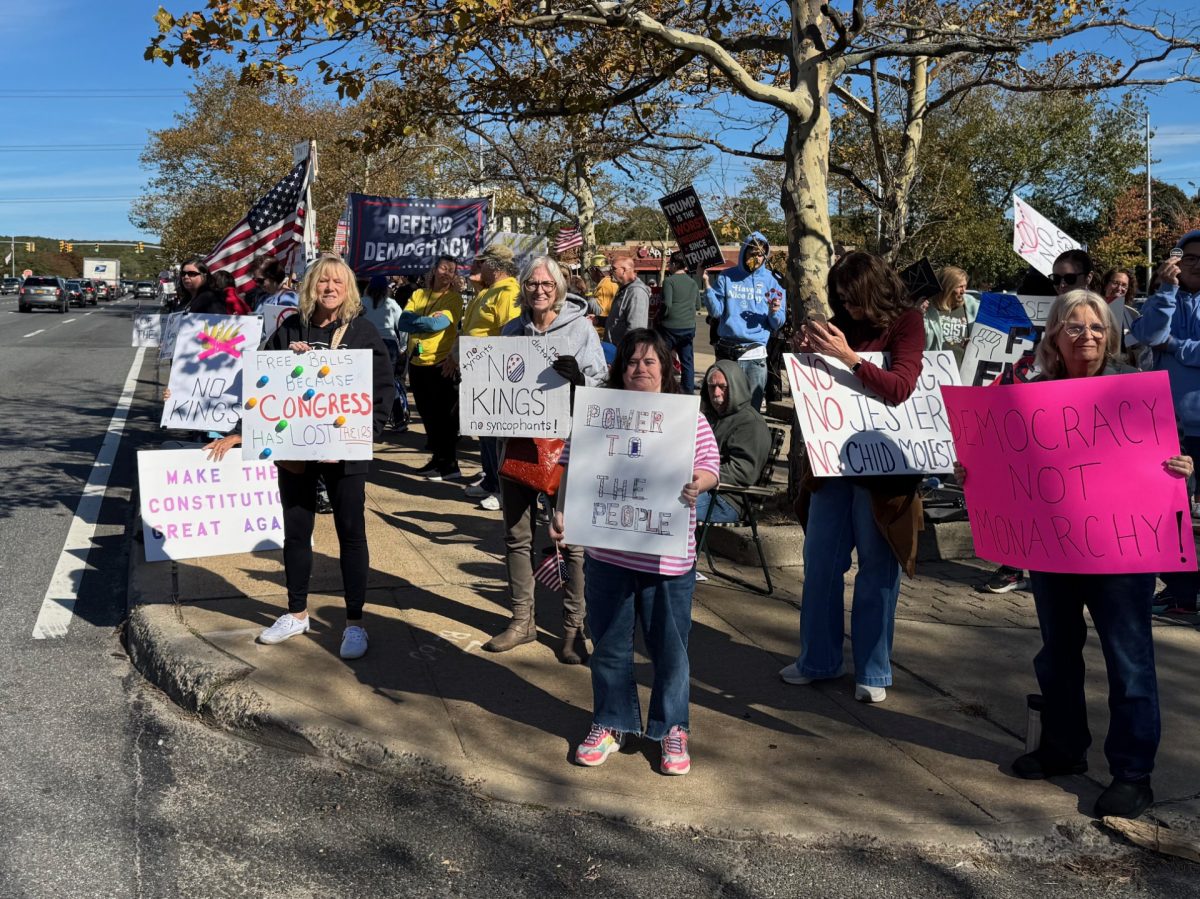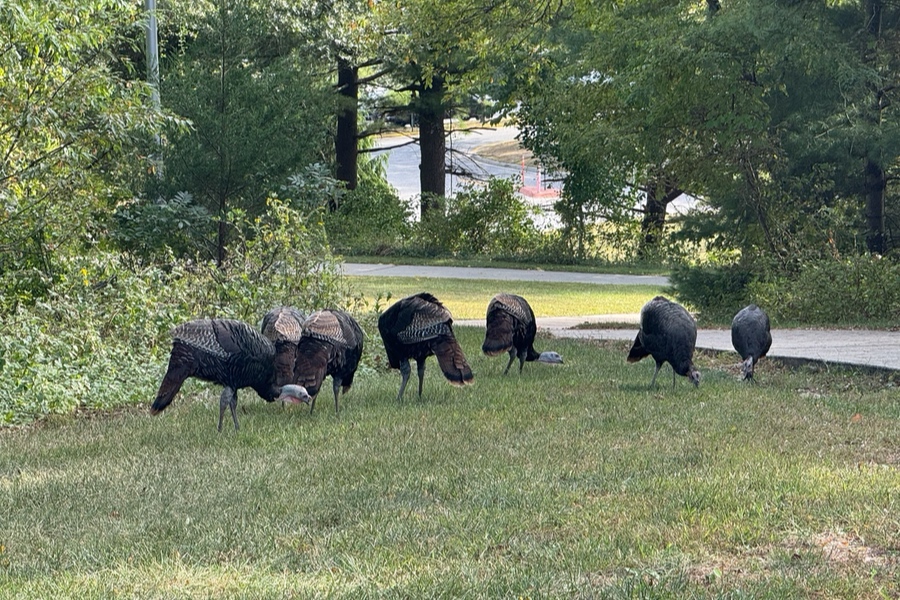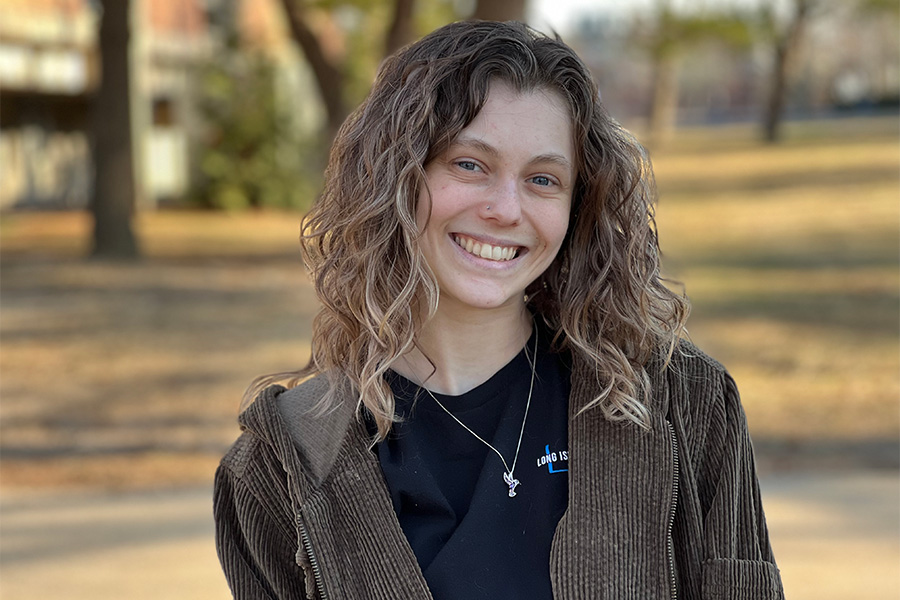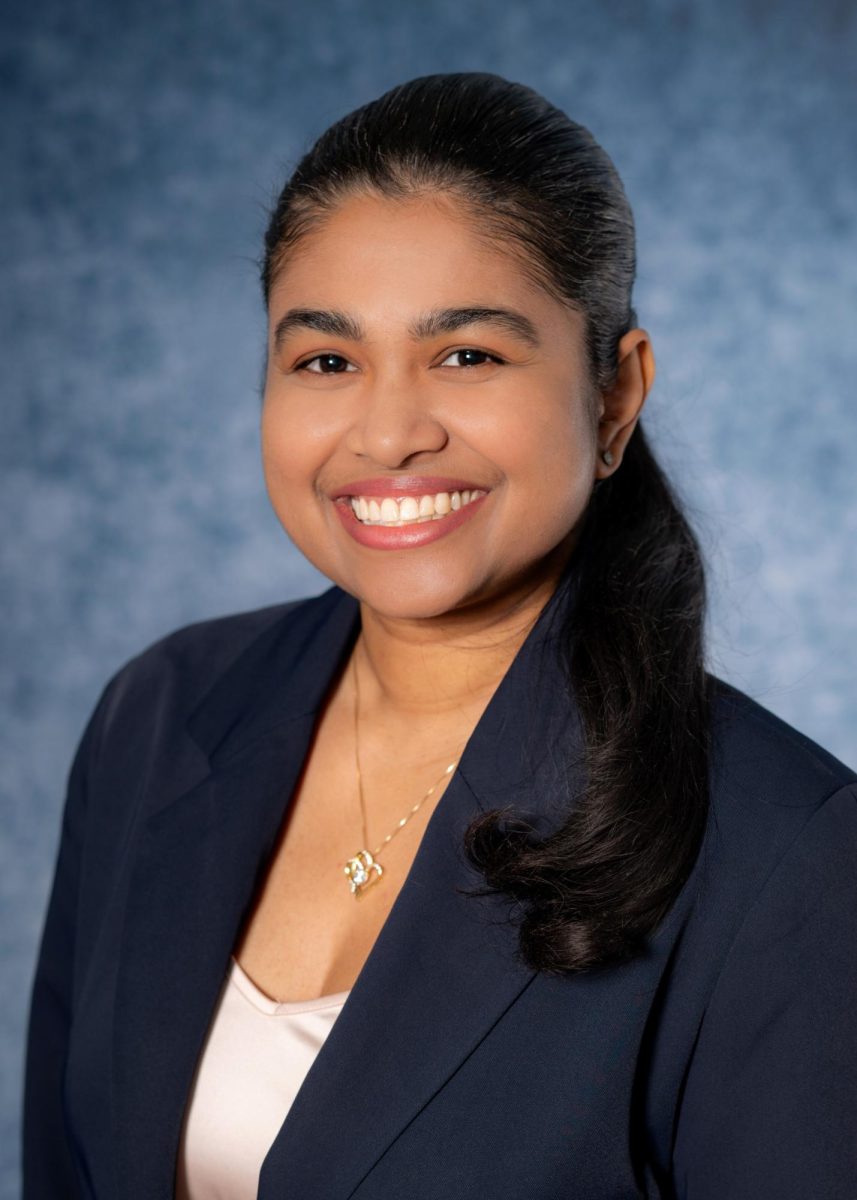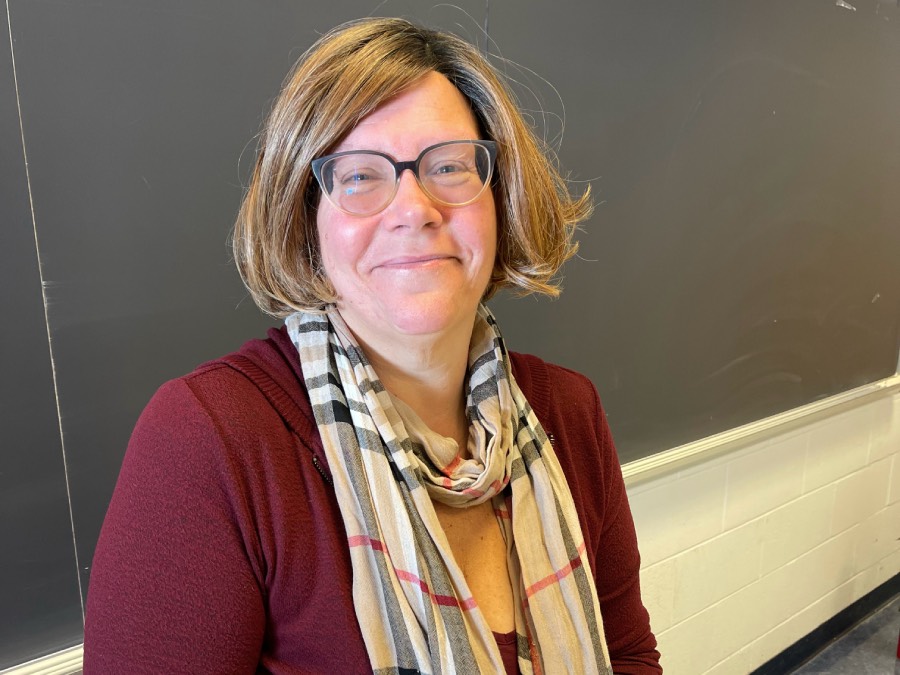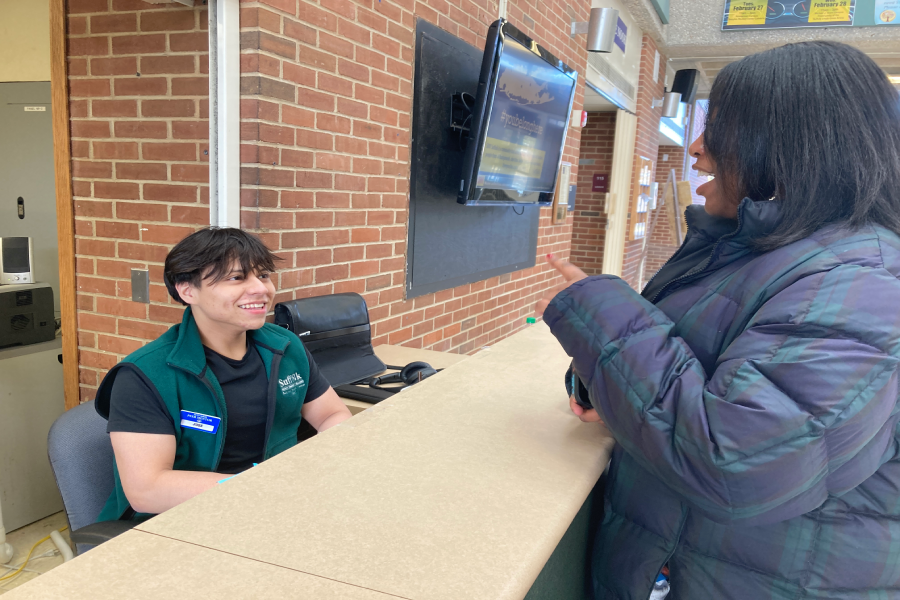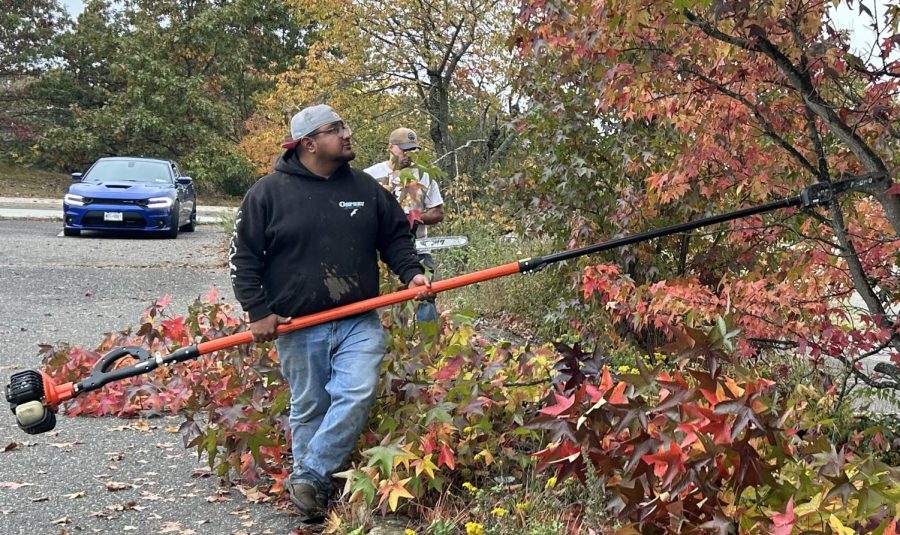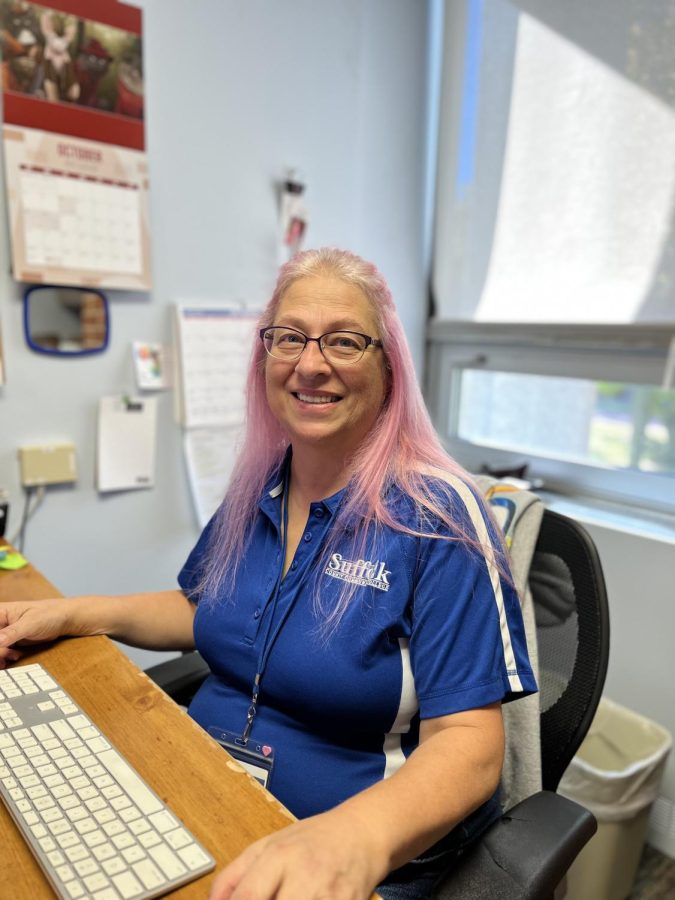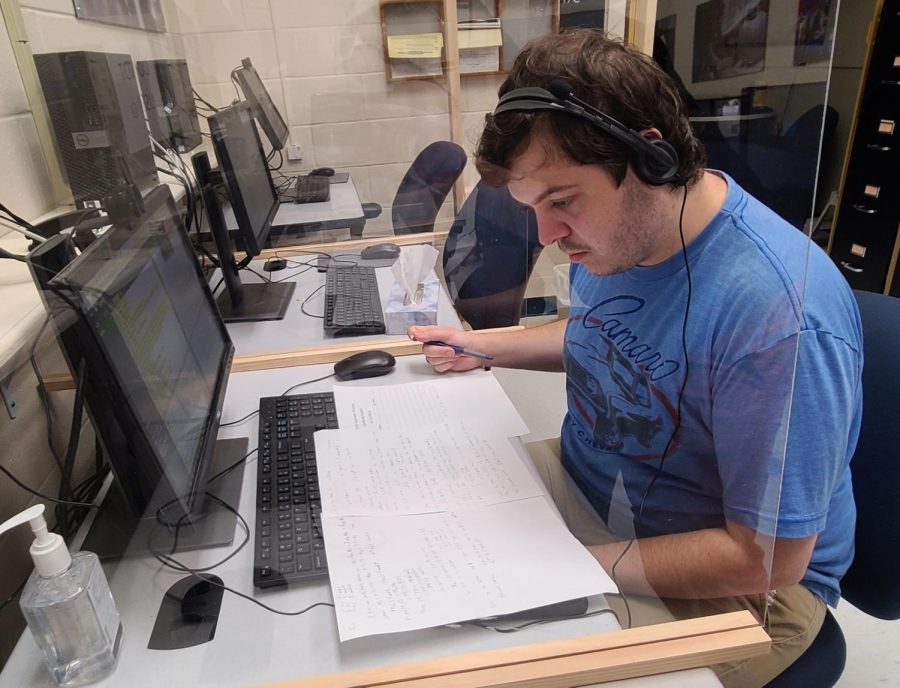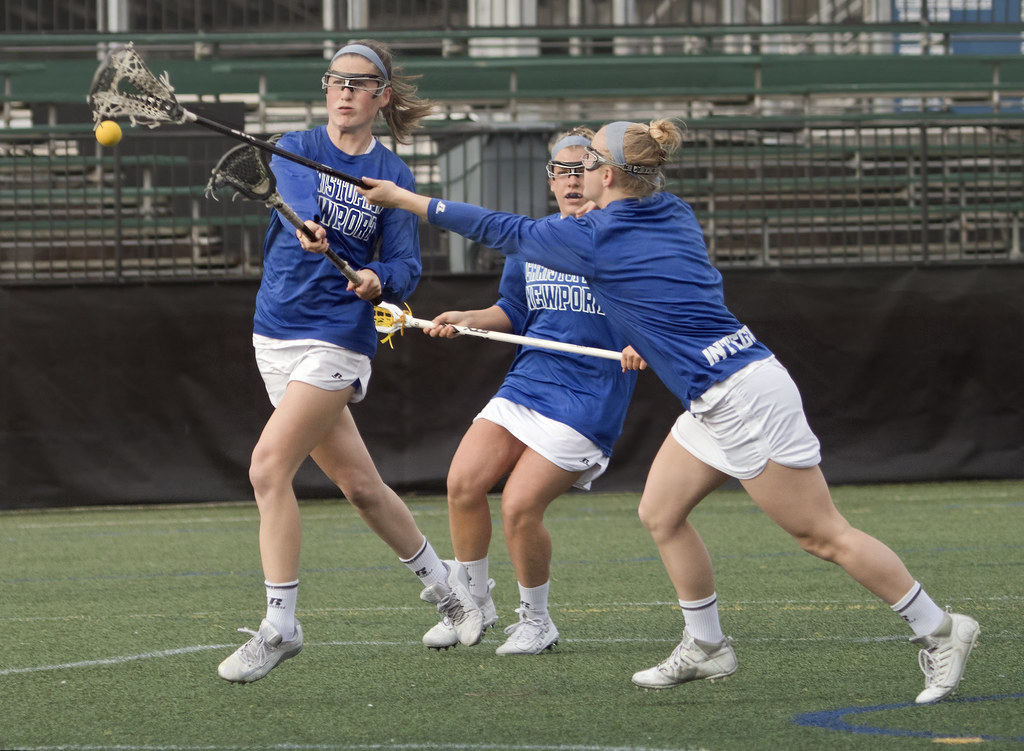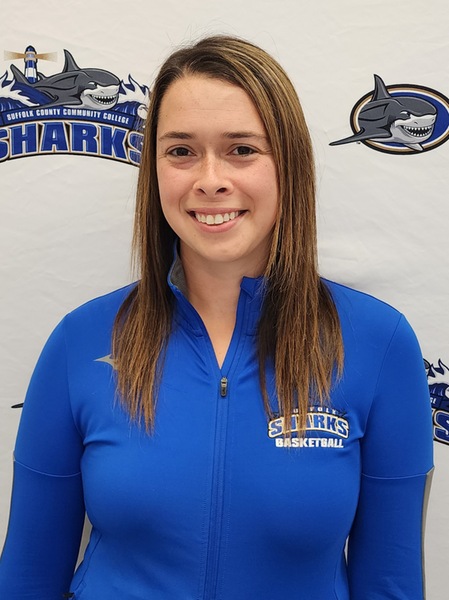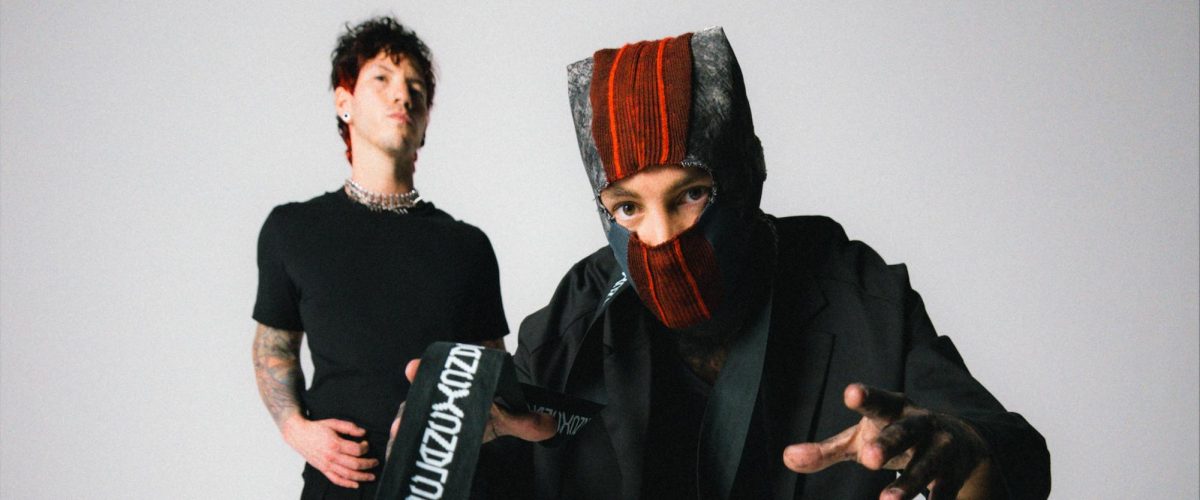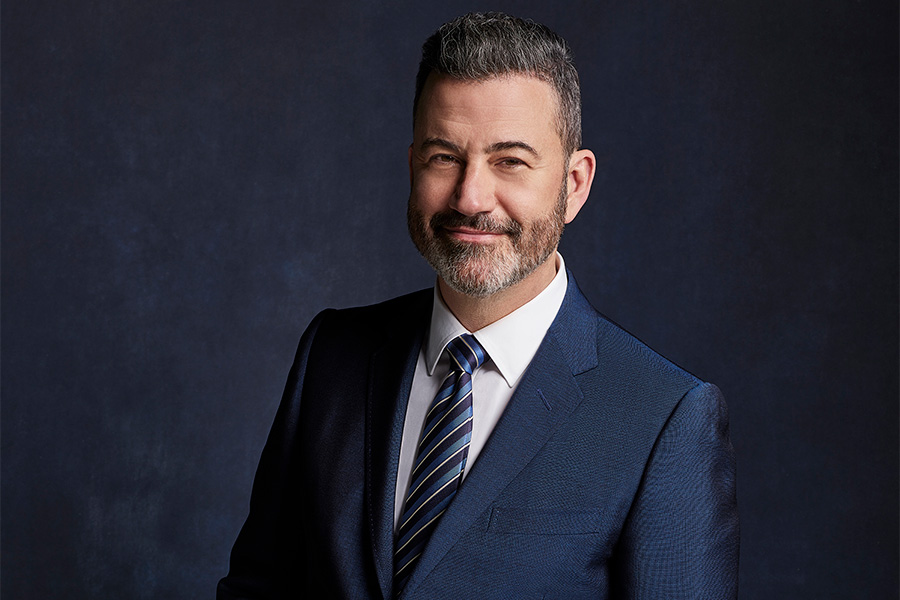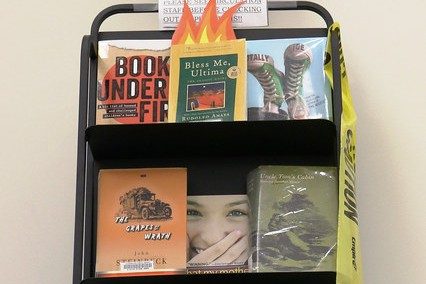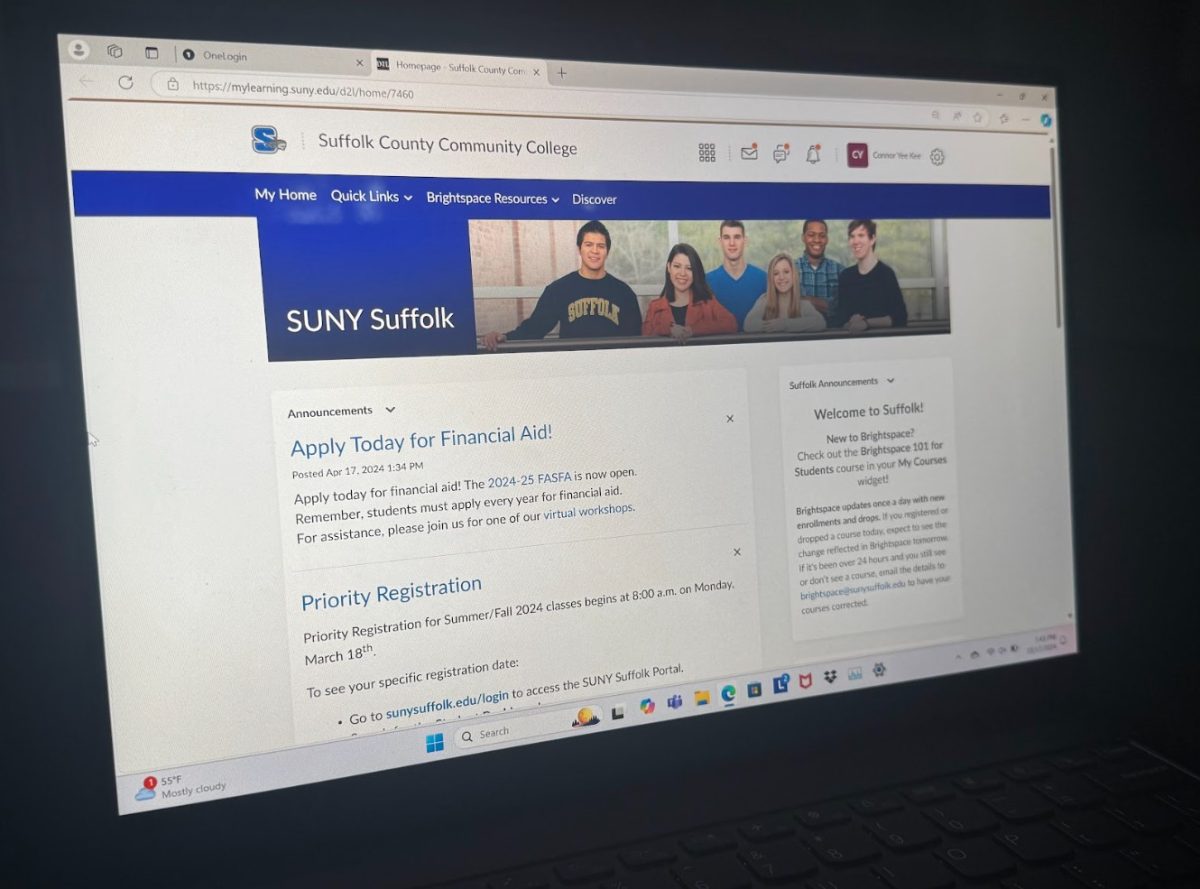Editor’s Note: The following article first appeared in the September 2025 issue of The WORD, the newsletter of the Faculty Association, the union that represents Suffolk faculty. It was co-written by Sara Lopez Garcia, the Suffolk student who, after being detained by ICE, received an outpouring of support from the SCCC community, and Cynthia Eaton, Lopez Garcia’s spring 2024 ENG101 professor.
Eaton said in an email that Lopez Garcia “was one of those rare students who stand out to me because every essay topic was focused somehow on doing good things for others.” She also put Lopez Garcia on her short list of “rock star students” who she recommended to be interviewed for the campus peer mentor program. (Lopez Garcia later became a peer mentor.) Eaton said Lopez Garcia, who had legal status in the U.S., was deeply involved in campus life from fall 2024 to spring 2025.
The article is reprinted with the permission of the FA and Lopez Garcia.
“Promise you’ll give your mom a message from me?” I asked. Sara promised. “Tell her that if I manage to raise my two sons to be even half as kind, caring and thoughtful as she’s raised you and your brother, I will consider myself a successful parent.”
Having always looked at Sara’s case from the perspective of both professor and parent, I waited to receive another assurance that my message would be translated for Sara’s mom Viviana, then we chatted for a bit more and wrapped up our long, lovely conversation.
It was August 4, just five days after Sara Lopez Garcia had finally been released from the ICE detention facility in southern Louisiana where she had been incarcerated for over two months with her mother.
I had been in regular contact with Sara’s fiancé Santiago and her brother throughout the summer, offering as much support, encouragement and help as I could for one of my favorite students. After arriving in Colombia, Sara called me to reflect on what had happened from the day before Commencement to her arrival in Bucaramanga as well as to share a message for the SCCC college community that had shown her so much love and support during her ordeal.
A bright young woman’s life turned upside down
As many know, Sara, her mother and her brother were detained by ICE agents in their home on May 21. “I was abruptly awoken at around 7 a.m. by officers banging loudly on my bedroom window,” Sara explained. “I stepped outside, confused and scared, trying to figure out what was going on.” Still in her pajamas, she did her best to assess the situation. The officers were in plain clothes, drove regular cars, nothing to identify them. They claimed to be looking for a previous resident, but quickly switched to asking Sara and her mother a litany of increasingly intrusive questions.
It all happened so fast, she said, and she did not think she had anything to fear—but that sentiment quickly evaporated when she was handcuffed along with her mother and brother and pulled from their home. They gave her only enough time to get dressed (her mom was already up, her brother eating breakfast before school), took all of their phones and then, Sara said, “What followed was a nightmare.”
ICE detention
Sara and her family were first taken to Central Islip, where her brother was released, but Sara and her mother were sent into Manhattan, then into New Jersey and ultimately to southern Louisiana. Sara described the experience:
Being moved from one jail to another, we weren’t allowed to sleep, shower or eat properly for two days. The food was terrible. Sometimes, we’d rather go hungry than eat it. By the time we arrived at the ICE processing center in Louisiana, they tried to reassure us by saying, “This is not a jail.” But it absolutely felt like one. The way we were treated—yelled at for no reason, looked down on, threatened—was no different. I was even threatened with being sent to the punishment cell just because I tried to help people who didn’t speak English. The officers didn’t want to hear it; they just wanted to move people without explaining anything. I was only trying to help them understand.
In the detention facility, Sara shared a large room with about 70 other women, having only limited access to the outside world. Reading the Bible with her mother helped. All of the women there shared access to a tablet and were allowed to make periodic phone calls.
In early July I was at a small gathering for Sara when she made one of those phone calls to her fiancé Santiago. I was overcome with emotion when he invited me to surprise Sara by answering his phone and getting to speak with her first. She wasn’t sure she heard properly when I said my name. “Eh? Quien es?” she asked. I repeated my name, then the squeals of laughter and joy that followed absolutely helped heal my heart.
As the phone was then passed around to their friends, I could still hear Sara on speaker, her voice upbeat, her laughter mixing with theirs. Even when we were choking back tears, I could hear Sara’s voice staying strong and positive. It hit me right then: While I’ve received messages from people thanking me for my courage in speaking out, nothing I have done is courageous. What I’ve done is just typing and talking from the comfort, safety and security of my own home or office.
The courageous one is Sara, for keeping her spirits up throughout that ordeal, for finding hope despite what happened to her, for the way that she—the one living a nightmare—reassured her friends that everything would be okay in the end.
“We weren’t completely alone”
Endlessly polite and modest, Sara kept thanking me for helping raise awareness of what was happening. “It’s not me, Sara, it’s you,” I told her. “People find your story so compelling. People are reacting because you are such a smart young woman, an active and involved student, someone who does good things for others. That photo of you in the blue dress, smiling, holding all those awards: that’s what people are reacting to.”
I asked how she felt about the media attention her case had generated. Sara knows that I did not speak with a single media outlet without first texting Santiago, asking him to consult with their attorneys and waiting for his written permission to do so. Every single one: the local Patch, Newsday, ABC, NBC, CBS. I was terrified I might do or say something that could negatively impact the legal work being done on her behalf.
When I had asked Sara’s brother about the media coverage, he told me, “It is weird how one day she is just my sister and the next she is all over TikTok and Instagram.” Sara agreed it felt odd and saw the press coverage as both positive and negative:
It was honestly surprising how much attention we were getting. I never imagined that so many news outlets would be interested in our story. When I realized how far it had spread, especially on Instagram and TikTok, I felt a mix of emotions: disbelief, nervousness and hope. Part of me thought maybe this attention could help us either by speeding up my release in the U.S. or at least accelerating my process of returning to Colombia.
But at the same time, it was also hard. Santiago was getting a lot of negative comments from people who didn’t understand our situation, and that was the most difficult part. We were already going through something incredibly painful, and seeing people judge without knowing the full story made it even harder.
Unfortunately, while I was still detained, I only got to see one of the news stories. I didn’t have access. It was frustrating, knowing that people were talking about me and supporting me but not being able to see it or respond.
Still, just knowing that our story was out there and that many people did care gave me strength. It reminded me that we weren’t completely alone.
Taking time to heal
In early June, Sara had agreed to self-deport, believing it would help them get out of ICE detention faster. By the end of July, she realized she had to return to Colombia because it is the right place for her to heal. Part of the healing is because she knows that Newsday had used a headline implying that she is not grateful for her time in the U.S. She does not want anyone to believe this:
Unfortunately, Newsday misunderstood my comments. What I actually said was that I’m very grateful to America because living there gave me the opportunity to meet amazing people who stood by us throughout this difficult process. What’s been disappointing is not the country or its people, but the way things are working right now. I was building a life there, and then it was taken away from me.
Sara continued to assure me, “Even now when I look back, I feel proud and fulfilled, no regrets at all. Just living life as a student in the U.S. was something really special for me.” Of course, she had never intended to complete her final semester at SCCC fully online, but she added quickly, “I’m so happy that I still get to complete my degree—it means a lot to me.” She intends to excel in those classes just as she has always done and to graduate in December.
Never one to sit still for long, in Colombia, Sara is about to start working at an architecture company as an interior designer and has also picked up work as a translator so as not to lose her fluency in English. Being with her loved ones, she notes that life is slowly starting to feel normal again.
“A place that will always be in my heart”
I made sure that Sara was aware of how many SCCC people have been expressing concern for her well being. Sara knows that on June 30, I had written an email appeal and WORD article asking colleagues to please consider the unfairness of what had happened to this beloved Eastern Campus student, to help raise awareness of her situation and to consider donating to the family’s GoFundMe. Within 48 hours of that email, the GoFundMe had increased by over $4,000. I told Sara how many names of donors I recognized as faculty, staff, administrators, retirees and even other students.
Sara is effusive in her appreciation for each and every person who donated or spoke out about her story. “I’m truly grateful to SCCC, my friends and everyone else—because at no point did they judge me or doubt me. The faculty were especially helpful; they didn’t just support me but also my family. I truly enjoyed my time at Suffolk. It’s a place that will always be in my heart.” She and Santiago talk about how glad they are to have gotten to enjoy the college experience, meeting amazing people and creating memories they will always carry with them.
A message to the SCCC community
A few times, while chatting with Sara by phone or text, I have heard her express some hesitation about how much attention her case has received. She knows there are others like her. I know there are others like her; I have been personally shepherding several students through the admissions and enrollment process this summer, and it has been both eye opening and humbling—especially given the complications in their lives.
Sara is clear that she was fortunate to meet and work with many caring and supportive employees at the Eastern Campus. She speaks highly of people like Trudy Christ (Interior Design); Courtney Foley (Academic Tutoring Center); Campus Activities Director Denny Teason, Principal Office Assistant Charlotte Serrano and former Program Assistant Paola Islas; and of course Campus Executive Dean Mary Reese. There are others, of course, who have made an impression on her—too many to name.
But Sara also hopes more faculty, staff and administrators would think about what other students are dealing with, both on and off campus. “I know it’s not easy to understand others, especially when they come from a completely different background,” Sara admitted. “But what’s happening now feels out of control, and it’s honestly really sad to see how much hate and discrimination is out there.”
Her greatest hope is that all SCCC employees would be understanding of students’ various experiences and needs: “Don’t judge someone without knowing their story. Try to be understanding. Do your work with a genuine willingness to help and with compassion. That makes all the difference.”
I promised Sara that we would do all we can to help more people make just such a difference.

